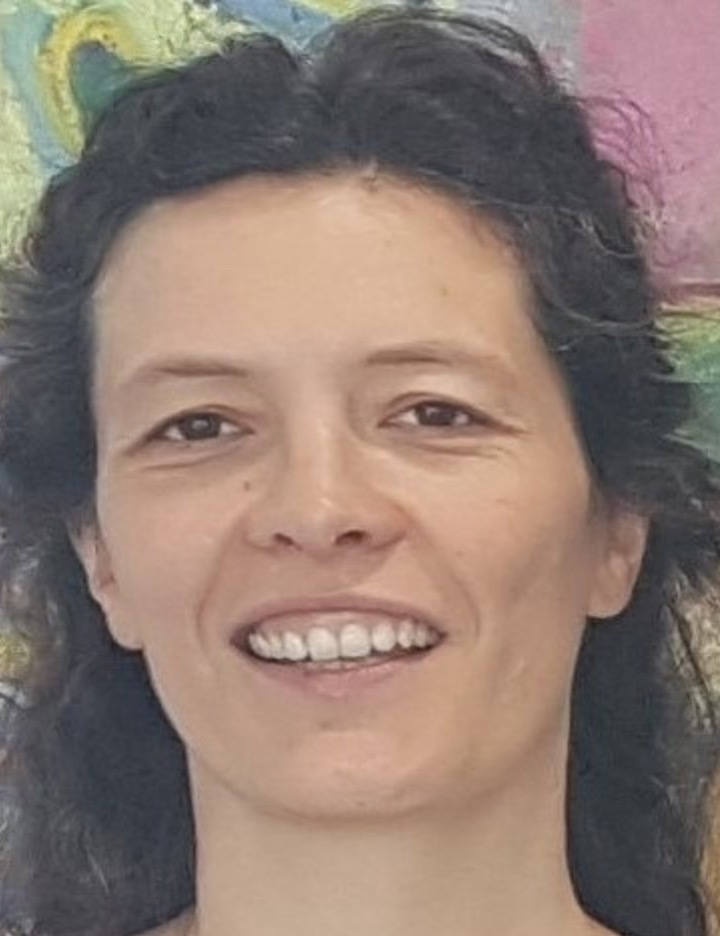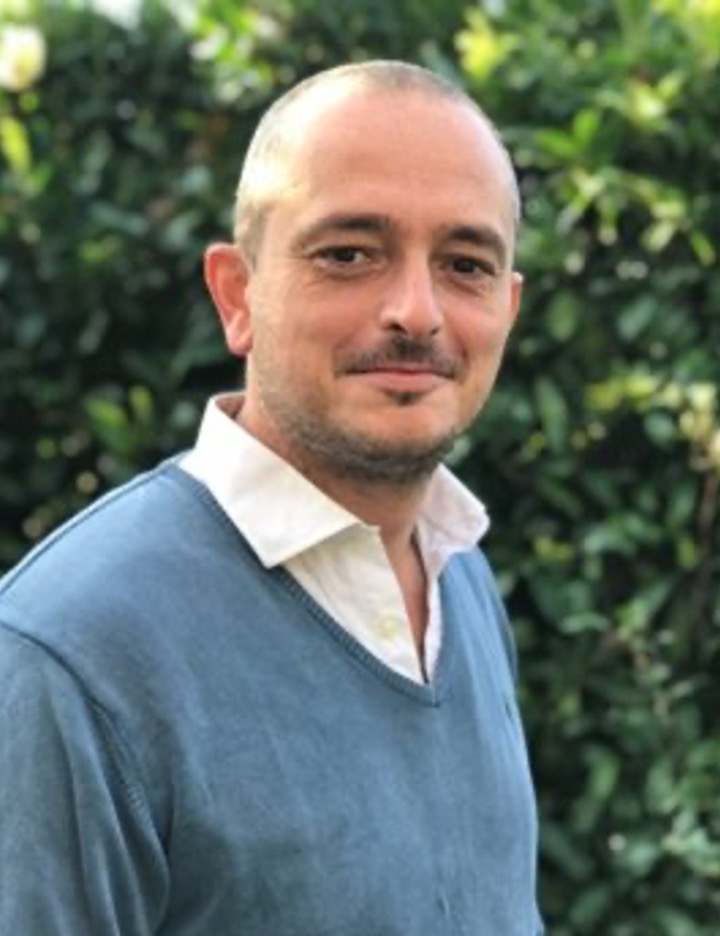LES MODÉRATEUR(RICE)S
|
| LES MODÉRATRICES ET MODÉRATEURS | | | | | | Véronique AVETTAND-FENOEL | | | |  | Professor of Virology at the Faculty of Medicine of the Université Paris Cité and Cochin Hospital- Assistance Publique – Hôpitaux de Paris, director of a research group at the Institut Cochin in the Margottin-Pique team (Retrovirus, Infection and Latency). She has been working for more than 15 years on HIV reservoirs with research at the molecular, cellular and tissue levels. She is the virologic investigator of several ANRS MIE cohorts and trials, with peculiar interest in collaborative studies of patients at the time of the primary infection, as well as HIV controllers and post-treatment controllers. She is also involved in the RHIVIERA consortium. | | | | | Valentine BECQUET | | | |  | Valentine Becquet est démographe. Elle est chargée de recherche à l'Institut national d'études démographiques (Ined) à Paris, affiliée aux équipes de recherche "Démographie des pays du Sud" et "Santé et droits sexuels et reproductifs". Ses recherches s’appuient sur une méthodologie mixte et portent sur la santé sexuelle, les trajectoires reproductives et de santé, les inégalités de genre et les préférences de sexe dans la fécondité. Elle travaille principalement en Asie du Sud-Est et en Afrique de l'Ouest. Elle est notamment responsable du volet qualitatif du projet Princesse (ANRS 12381), qui développe, documente et analyse une offre globale de santé sexuelle et reproductive incluant la prévention combinée du VIH, auprès de travailleuses du sexe en Côte d’Ivoire | | | | Anne-Sophie BEIGNON
| | | |  | I am a vaccines immunologist. As a PhD student, I worked on non-invasive skin administrations of vaccines under the supervision of S Müller and C Partidos in Strasbourg. As a postdoc, I studied the activation of plasmacytoid dendritic cells (pDCs) by HIV-1 and I evaluated the use of TLR7/8 agonists as adjuvants for DC-based vaccines in the lab of N Bhardwaj in NYC, then I contributed to the preclinical development of lentiviral vector based-vaccines against HIV/AIDS and malaria with P Charneau at Institut Pasteur Paris. In 2012, I moved to the lab and team of Roger Le Grand (CEA Fontenay-aux-Roses) and switched to more basic research to understand the immunological mechanisms of vaccines. The study of the dynamics of and interactions between innate and adaptive responses in the context of prime/boost vaccine strategies and depending on the delay between immunizations revealed that some vaccines can reprogram innate cells in the long-term. I now focus my research on the mechanisms of such innate immunological memory and how to make use of it to improve vaccines and health. I am also involved in the logical modeling of inflammations using both prior knowledge and experimental data and boolean networks to test mechanistic hypotheses in silico and towards the development of digital twins. | | | Nicolas HUOT
| | | |  | Après avoir étudié la biochimie et la microbiologie à l'Université de Cergy Pontoise, le Dr Huot a obtenu son doctorat en microbiologie à l'Université de Paris 12 dans le Laboratoire du Dr Yves Gaudin, ou il a étudié les mécanismes responsables de la latence du HSV-1. Il a ensuite poursuivi en tant que post-doctorant sous la direction du Pr. M. Müller-Trutwin d'abord au Centre IDMIT en collaboration avec le Pr Roger Le Grand puis à l'Institut Pasteur de Paris. Il a récemment rejoint le laboratoire Müller-Trutwin en tant que chercheur permanent. Ses recherches portent sur l'étude des mécanismes qui régulent la persistance virale et son interaction avec l'hôte. L'objectif de sa recherche est de comprendre les mécanismes misent en jeu dans le contrôle tissulaire virus de l’immunodéficience humaine (VIH). Ainsi Il a peu identifié le rôle clef joué par les cellules NK sur le contrôle viral au sein des ganglions lymphatiques chez l’hôte naturel du SIV. Ces observations ont déjà été validées dans un essai préclinique démontrant que l'induction de cellules NK hautement différenciées par des cytokines, permet une réduction du réservoir viral dans les ganglions lymphatiques chez les macaques infecté par le SIVmac. Actuellement, il se concentre sur l'interaction entre l'ontogenèse des cellules NK tissulaires et l'infection virale. Ses études sont menées dans le but de fournir de nouvelles connaissances utiles au développement de nouvelles approches curatives et préventives de l’infection par le VIH chez l'homme. | | | | | Marie-Marie OLIVE | | | |  | Marie-Marie Olive est chercheure en épidémiologie quantitative et qualitative au sein l’UMR ASTRE au Cirad, spécialisée dans la surveillance et le contrôle des maladies vectorielles et/ou zoonotiques. Elle a une expérience de 8 ans à Madagascar avec le Cirad et l’Institut Pasteur de Madagascar, et a mené, notamment dans le cadre de sa thèse, des travaux sur la compréhension des mécanismes de transmission de la fièvre de la vallée du Rift. Elle a ensuite travaillé sur l’évaluation des mesures de lutte contre les Aedes vecteurs d’arbovirus à l’IRD, au sein de l’UMR MIVEGEC, dans le cadre d’un post-doctorat. Depuis la fin de l’année 2021, elle mène des travaux sur la surveillance et le contrôle intégrée, par des approches One Health, des maladies vectorielles et/ou zoonotiques en Afrique de l’ouest et Afrique centrale au sein de l’UMR ASTRE du Cirad. Ses travaux de recherche s’attachent, notamment, à la coconstruction et au développement de systèmes de surveillance et de réponse rapide aux émergences de pathogènes zoonotiques, basés sur les besoins et contraintes des acteurs de ces systèmes, y compris les acteurs locaux (citoyens, agents communautaires). Elle participe également à des activités d’enseignement via l’encadrement d’étudiants en Master et en doctorat ainsi qu’en donnant des cours sur les approches One Health, la surveillance des maladies zoonotiques auprès d’étudiants en Master 2 et lors de formation continue. | | | | | | | | Abdoul-Salam OUÉDRAOGO | | | |  | Docteur d’état en Pharmacie, le domaine de compétence du Professeur Ouédraogo est la Microbiologie dans laquelle il s’est spécialisé. Il a décroché les diplômes de Rétrovirologie à Dakar puis les diplômes Pasteur de Virologie et de Bactériologie, respectivement à l’institut Pasteur de Paris et de Lille. Passionné de la science de la résistance aux antimicrobiens, il s’est perfectionné à travers un cours à l’institut Pasteur de Paris sur le sujet et en a même fait son thème de thèse d’Université (PhD en Microbiologie) qu’il a préparé et soutenu à l’université de Montpellier en France. Dans le cadre de la prestigieuse compétition internationale Fulbright de la coopération américaine, le Professeur Ouédraogo a réalisé une mobilité hospitalo-universitaire aux États-Unis et s’est consacré aux travaux sur les pathogènes émergents et réémergents dans la très renommée chaine hospitalo-universitaire la Mayo Clinic. Toutes ces expériences ont été capitalisées et couronnées en 2020 par sa nomination au Grade de Professeur Titulaire de la chaire de Bactériologie-Virologie. Professeur Abdoul-Salam Ouédraogo est actuellement le Directeur du Centre MURAZ de Bobo-Dioulasso et Coordinateur du Laboratoire National de Référence des Résistances aux Antimicrobiens du Burkina Faso. | | | | | | | Stephane PAUL
| | | |  | Stéphane Paul est Professeur / Praticien (PUPH) en Immunologie et Vaccinologie à la Faculté de Médecine de Saint-Etienne (France) depuis 2008. Il est le PI de l'équipe 15 du CIRI nommée Physiopathologie et biothérapies des infections muqueuses (GIMAP) à Lyon. Il dirige également le service d'Immunologie du CHU de Saint-Etienne avec une forte expertise dans le suivi des biothérapies. Avant de rejoindre l'académie, il a travaillé pendant plus de 12 ans pour Transgene (Strasbourg) en tant que chef du département préclinique ou d'immunologie et responsable de la plateforme d'adjuvants vaccinaux. Ses recherches portent sur l'immunité des muqueuses contre les inflammations chroniques (VIH et MICI), les adjuvants vaccinaux et la vaccination mucosale. Il est co-fondateur du Centre d'Investigation Clinique en vaccinologie de Saint-Etienne et coordonne le nouveau Master européen Erasmus+ LIVE en vaccinologie. Depuis juin 2020, il est membre du comité français vaccin COVID-19 et il rejoindra le Comité Technique de la Vaccination (CTV) à la HAS. | | | | Audrey RICHARD
| | | |  |
Dr. Audrey Richard is the Director of operations of ERINHA (the European Research Infrastructure on Highly pathogenic Agents) since March 2021. She holds a Master of Biochemistry and Molecular Biology (University of Nancy, France) and a Ph.D. in Molecular and Cell Biology (University of Lille, France) focused on the study of the transcriptional and post translational regulation of the non-structural protein 1 (NS1) of oncolytic parvovirus H1. She then joined the Scripps Research Institute in Jupiter, FL, USA, first as a post-doctoral researcher (2013-2015) and later as senior staff scientist (2015-2019) in the Immunology and Microbiology Department where her work led to a better understanding of the phospholipid-mediated entry of a number of enveloped viruses, especially the West Nile, dengue and Zika viruses. She also served as a member of Scripps’ Biosafety Committee and as Chair of the institute’s scientific symposium Dr. Richard came back to France in 2019 to join ERINHA, as a scientific project manager. She was appointed Director of operations in 2021 and is currently in charge of the scientific strategy and operations of the infrastructure. She is, among others, the scientific lead of the ERINHA-led, EU-funded ISIDORe (Integrated Services for Infectious Disease Outbreak Research) project, a large-scale research infrastructure action launched in early 2022 that aims to support researchers by providing them with free-of-charge access to a broad catalogue of services and capacities for advancing their research on pandemic-prone pathogens.
| | | | | Perrine ROUX | | | |  |
Perrine Roux is a public health researcher with over twenty years of experience in the fields of HIV, Hepatitis C, and harm reduction. After a two-year post-doc at the Substance Use Research Center in Columbia University, she was awarded the position of permanent researcher at the French National Institute for Medical Research (INSERM) SESSTIM - Unit 1252 in Marseille, France. She is the PI of several mixed-method, multidisciplinary projects related to access to care and prevention for people who use drugs. Perrine currently leads a research group in the SESSTIM unit on community-based participatory research on HIV and harm reduction, and has over eighty publications in this field.
| | | | | Stephan ZIENTARA | | | |  | Stéphan Zientara was born on the 7th of April 1964 in Maisons-Laffitte (France). He was graduated as doctor in veterinary medicine in 1987 (Nantes veterinary school), in veterinary sciences (PhD) in 1995 (Nancy University) and HDR in 2001 (Lyon University).
Stéphan Zientara is Director of the Joint Research unit 1161 in Virology ANSES/INRAE/ENVA. He is also Deputy Director of the ANSES-laboratory of Animal health in Maisons-Alfort (France), Director of the European Union reference laboratory on equine diseases, Deputy Director of the European Union reference laboratory on Foot-and-Mouth disease and head of the WOAH/OIE reference laboratory on EHDV. Stéphan Zientara is member the expert committee for animal health at the French Food Safety Agency (ANSES) and expert on animal health for international organizations such as WOAH/OIE (World organization for animal health), FAO (Food and Agriculture Organization), EFSA (European Food Safety Authority) and EU (European Commission) on viral diseases (African Horse Sickness, Foot-and-Mouth, Bluetongue, West Nile, …). He has participated in many EU grants. His research interests cover several aspects of animal virology, especially detection and studies on of animal virus-host interactions.
| | | | | | | | | | | | |
|
|---|
|
|